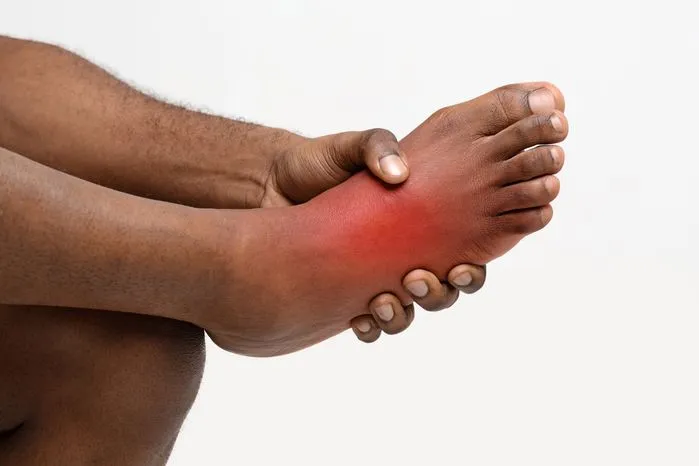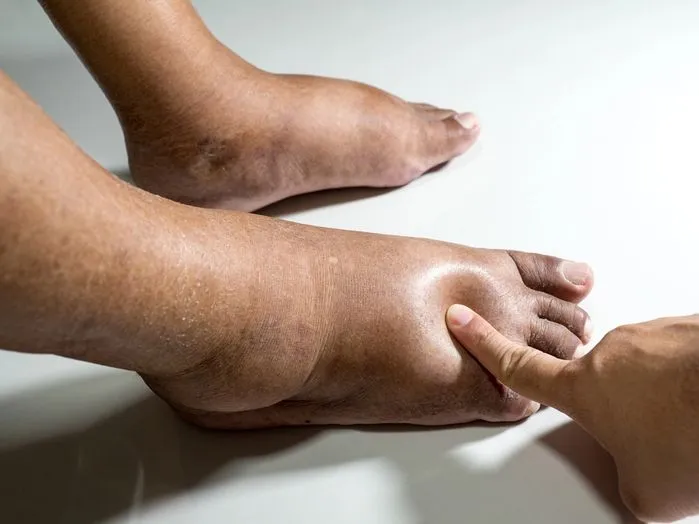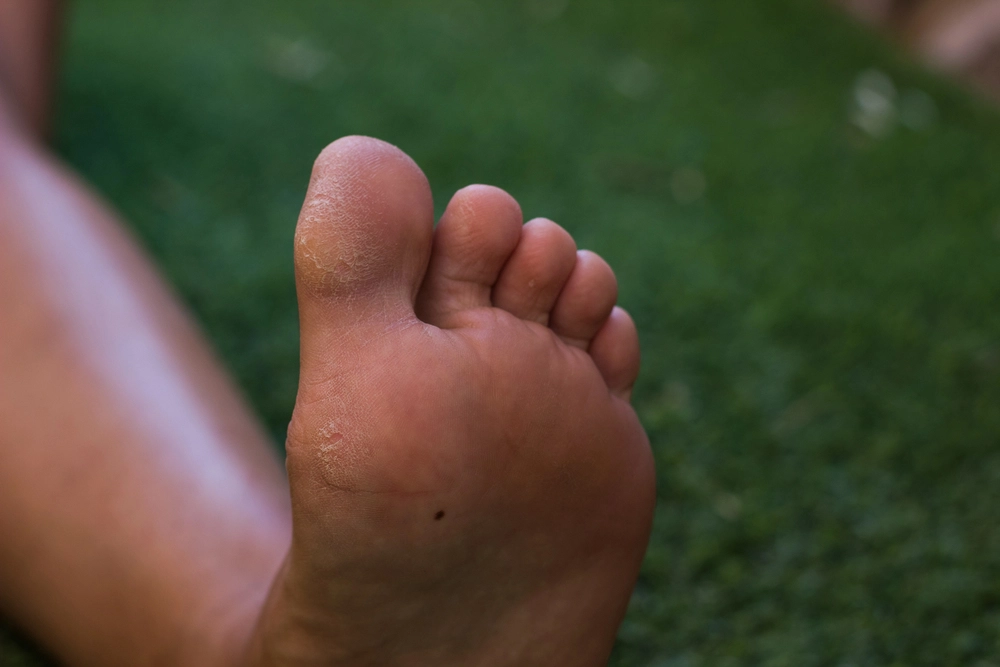
Intense performance comes at a great price. This is a true sentiment of any athlete about their health. Most of the time, it is their feet that are at stake. Wrong landing can fracture your legs, being quite agile can take a toll on your Achilles Tendon, and worse, for no reason at all… you’ll get a bunion once in your life.
The good thing is that with the help of podiatrists, you can have minimally invasive foot surgery and foot care.
Because of their medical expertise, they can treat complicated problems and correct bone diseases. Your choice between these two doctors should depend on your condition and treatment preference.
Key Takeaways
- Treating and preventing bunions, fractures, and Achilles tendon problems, foot doctors
- Orthopaedists treat several musculoskeletal disorders and perform difficult foot surgeries.
- Foot condition and severity must be determined, and the patient must select a podiatrist or orthopaedist.
- To prevent foot injury and reduce discomfort, podiatrists recommend shoes and orthotics.
- In milder circumstances, exercise or acupuncture could be better than surgery.

Bunions, Fractures, and Achilles Tendon Injuries
Podiatric conditions include bunions, fractures, and Achilles tendon injuries. Knowing the symptoms, causes, and treatments of these disorders helps you control and heal from them.
The base of your big toe develops painful bunions. Bunions can result from tight shoes, standing, and foot features. One can concentrate on lowering these risk factors to avoid bunions. Wearing appropriate shoes, maintaining a healthy weight, and performing foot-strengthening activities are included in this.
Foot fractures can be major breaks or little cracks. Acute injury, overuse, or diseases weakening the bones can all cause these fractures. Usually, treatment consists of rest, immobilization, or surgery.
Tendinitis, rips, and ruptures can occur in the Achilles tendon. Overuse or sudden increases in training intensity are common causes. Rest, rehabilitation, and surgery are common treatments for Achilles injuries.
The Role of a Podiatrist in Foot Care
Podiatrists treat bunions, fractures, and Achilles tendon injuries. Due to their podiatry knowledge, they can offer foot care and surgical treatments.
These healthcare specialists also serve as educators, suggesting preventive strategies for sustaining foot health. Podiatrists become your trusted advisors for comprehending your foot mechanics and enhancing their function, irrespective of conditions like bunions or injuries to the Achilles tendon.
They also provide needed shoe recommendations, considering footwear's significant impact on foot health. Equipped with knowledge about the newest footwear technologies and designs, podiatrists can help alleviate pain and amplify comfort. Guidance from these experts can assist you in choosing shoes with suitable support, cushioning, and fit for your exclusive foot structure and condition.
In short, podiatrists' role in foot care is diverse, combining treatment, education, and advice. Their knowledge is paramount in aiding patients in managing their foot conditions and attaining optimal foot health

Orthopedists: Experts in Skeletal System Disorders
Orthopaedists treat and diagnose problems of bone, joints, ligaments, tendons, and muscles. Their musculoskeletal knowledge helps them to recognise and treat minor fractures to serious bone diseases.
Surgical or non-surgical orthopedic treatment depends on the illness's kind and severity. Physical therapy, medicines, and complex operations to rectify deformities or repair damage are possible therapies. The ability to deliver these therapies relieves pain, restores function, and improves quality of life.
Orthopaedists identify bone problems with advanced procedures. For abnormalities, X-rays or MRIs may be employed. These photos can be carefully analyzed to provide a personalized treatment strategy.
Podiatrist vs. orthopedist for Foot Ailments
The orthopaedist treats musculoskeletal diseases, while the podiatrist treats feet. Patient demands and foot conditions typically determine which professional to choose. Each professional brings unique strengths and specialized knowledge, which highly influence treatment options.
- Practice Scope: Orthopedists treat a wide array of musculoskeletal disorders, including foot and ankle conditions, contrasting with podiatrists, who restrict their focus to foot ailments.
- Methods for Treatment: Both types of professionals can administer surgical and non-surgical treatments for foot conditions. However, orthopedists are more equipped to conduct complex surgical procedures, while podiatrists are adept at managing conditions through less invasive methods.
- Differences in Qualification: Wider clinical training spanning all body systems is part of their qualification, as they are essentially medical doctors. Podiatrists are trained in foot and ankle care.

Making an Informed Decision for Your Foot Health
Assessing your condition, exploring treatment alternatives, and consulting with a knowledgeable healthcare professional are key factors in making a well-informed decision concerning foot health. Knowing more about how footwear affects your health is equally important. Ill-fitting shoes can worsen bunions and stress fractures. Podiatrists can also recommend shoes and orthotics to ease pain and avoid injury.
Alternative therapies could be beneficial, especially for non-severe conditions. Treatments ranging from exercises to holistic methods like acupuncture might help ease symptoms without resorting to surgery. Orthopaedists specialize in surgical and physiotherapy.
Your foot ailment determines whether you see a podiatrist or orthopaedist. Both these professionals offer unique advantages and specialized knowledge. Openly discussing your symptoms, lifestyle, and treatment choices with your primary health caregiver can assist in making this significant decision. Remember that foot health is vital for your overall health, so choose what best fits your requirements.
Frequently Asked Questions
Foot or an orthopedic doctor for Achilles tendonitis?
Orthopedics and podiatrists treat Achilles tendonitis. The conservative Achilles tendinitis podiatrist uses medications, orthotics, and PT.
Bunion surgeons are podiatrists?
Foot surgeons often operate bilaterally. Foot and ankle podiatrists treat bunions. Their specialty is surgery for bunions and pain.
Pedonatologists put foot fractures?
Podiatrists diagnose and treat foot fractures. Their foot fractures can be immobilized, cast, or operated on.
Podiatrists and orthotics differ; how?
Orthotists and podiatrists differ in specialization. Orthotics fit and cure musculoskeletal abnormalities, while podiatrists treat foot and ankle disorders.
Greatest foot doctor?
Foot doctor selection depends on condition and therapy. Podiatrists treat feet and ankles, unlike orthopedic doctors. Refer to a doctor for a foot specialist.
Do podiatrists treat ulcers?
Podiatrists treat foot and ankle injuries. Treating sprains, fractures, and ligament tears.
Podiatrist Achilles repair?
Surgery can repair Achilles tendons. Achilles tendon surgery specializes in reconstructing. When non-surgical treatment fails, podiatrists may recommend surgery for severe Achilles tendon diseases.
What treats foot and ankle diseases?
Foot and ankle specialists are podiatrists. They heal bunions, plantar fasciitis, ankle sprains, and other conditions that can be surgically or non-surgically treated.
Where should I consult a podiatrist or orthopedist?
Your problem decides whether a podiatrist or orthopedist is needed. Orthotists make braces, splints, and shoe inserts, whereas podiatrists treat foot and ankle conditions. Consult both professionals if you need orthotics.
Who cures foot problems?
Podiatrist specialists treat feet, from ingrown toenails to diabetic foot ulcers. If you have foot pain, discomfort, or irregularities, see a podiatrist.


















